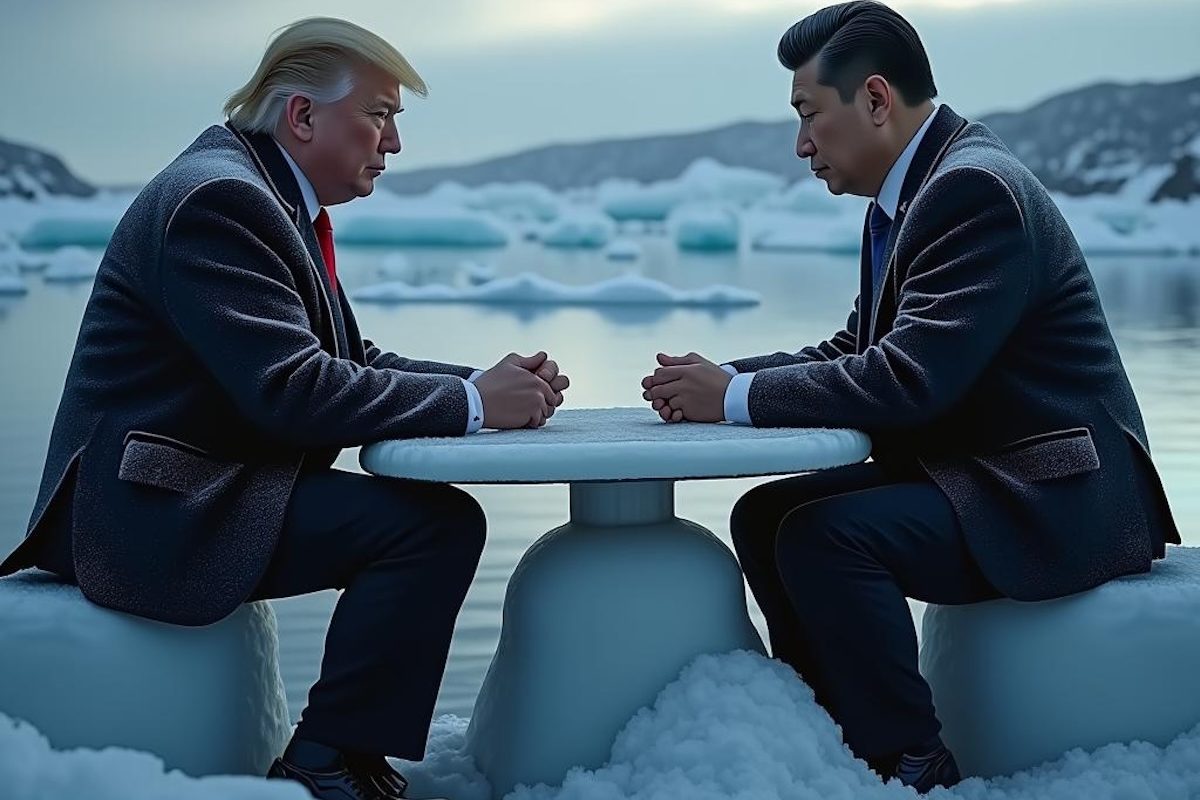The summit between American President Donald Trump and his Chinese counterpart Xi Jinping could be a meeting between two good, decent people.
Those who know him describe Xi as a kind man who is always attentive to the needs of those around him. Trump himself should be a good man, given all the effort he puts into appearing bad. Evil men usually don’t do that; they want to look good.
However, individual goodness won’t alter the nature of the meeting or the direction it might take.
Two heavy shadows loom over the gathering: the sudden cancellation of the planned meeting between Trump and Russian President Vladimir Putin, and the very fresh flurry of trade disputes and threats between the US and China.
Trump already questioned the meeting with Xi, then reaffirmed it. But nothing is certain at this point.
The two presidents, in fact, represent two countries with fundamentally and clearly opposing needs. China needs to sustain and even expand its trade surplus, which is currently the primary driver of growth in its otherwise struggling domestic economy.
Conversely, America needs to curb and eliminate China’s trade surplus because it is unsustainable for its finances. For both nations, their conflicting needs are vital, and each believes it has the advantage over the other.
Xi represents 1.4 billion Chinese. Trump speaks for 350 million Americans and, indirectly, the interests of about six billion people worldwide who live within the American socio-economic system.
The needs of the Chinese, if they succeed, could reshape the global structure by reducing or removing American centrality. Some countries might support or even welcome this shift, although a world led by China remains uncertain and unclear. Others may view a Sino-centric world with dread or suspicion.
Furthermore, China and the United States do not place much trust in each other – apart from any good personal rapport between the two leaders. It remains unclear how this lack of confidence, deeply rooted in both systems and beyond personal communication, can be addressed.
Beijing has long relied on American billionaires friendly to China to smooth over issues. However, they no longer hold much weight in Washington or Beijing.
What remains is essential but not existential for either of them. It would be best to have more short-term flexibility.
The US relies heavily on Chinese rare earth elements, so it can only ask for them and offer promises in return. However, in the long run (exact timeframe unknown), the US aims to become independent of Chinese rare earths. This shift would leave China with no leverage, effectively leaving it at the mercy of the US, its primary export market and a leading provider of services ranging from aviation to credit.
Therefore, China needs to buy itself as much time as possible and secure an alternative form of leverage or wean itself off US dependencies in the meantime. Its grip on Russia could be essential.
The US has the opposite necessity: to get out of the Chinese rare earths chokehold ASAP and deprive China of any other leverage.Some billionaires on both sides are floating the idea of rekindling ties with a wave of Chinese investment in the United States. Some estimate it could be $600 billion.
The idea, while promising at first glance, may not gain much support on either side. The US might worry that these investments would give China a greater voice in American society, as has happened with TikTok.
The US could demand that, unlike the case with TikTok, Beijing fully transfer all technology to America. The Chinese might also worry that, if they did that, the US could eventually nationalize those investments.
The game, therefore, is a long one; it won’t be decided in a summit. It’s a Second Cold War, for lack of better terms. It’s a complex framework, but Trump and Xi can set the tone for the future. One key element is ensuring that the confrontation remains within limits and doesn’t spiral out of control. If these two leaders could establish some boundaries on the intensity of the Cold War, it would already be a significant achievement.
As any investor knows, limiting losses sometimes is the only way forward until conditions change.
An Italian analyst and commentator on politics, with over 30 years of experience in China and Asia, Francesco Sisci is director of the Appia Institute. This article, first published by the institute, is republished with permission.
